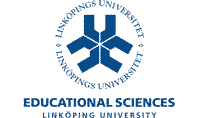
|
Visa svensk kursplan |
|
COURSE CATEGORY Single Subject Course MAIN FIELD OF STUDY Övriga ämnen - ÖÄA SUBJECT AREA Övriga ämnen - ÖÄA |
COURSE CODE | 921G11 |
On completion of the course, the student shall be able to
1. define and discuss the concept of ”Culture” in relation to the content of the course
2. present and compare some cultural expressions and relate these to identity
3. define and explain the concepts of material and immaterial cultural expressions
4. motivate and argue how outdoor and experiential learning, motivate and argue how outdoor and experiental learning can be applied in pedagogical practices
5. use aesthetic representations in a presentation
6. apply a scientific approach when writing course exams
Students visit and examine urban and rural surrounding areas. Outdoor education and learning methods as well as aesthetic methods are presented and applied as a means of learning. The student’s own experiences from the course form the basis for reflection and processing of the course content.
The following subject areas are covered by the course
Culture and cultural heritage; identity creation; Art, craft and music in the Nordic countries; Swedish schools and school systems; children’s literature and young adult fiction from the Nordic countries – primarily from Sweden; some Nordic artists, musicians and film-makers; Immaterial culture such as popular beliefs and fairy tales. Traditions and festivals as well as cooking as way of getting to know a specific culture.
Students who have passed an examination may not retake it in order to improve their grades.
Students failing an exam covering either the entire course or part of the course two times are entitled to have a new examiner appointed for the reexamination.
Students who have passed an examination may not retake it in order to improve their grades.
At least one year of full-time undergraduate studies.
Documented knowledge of English equivalent to "Engelska B"; i.e. English as native language or an internationally recognized test, e.g. TOEFL (minimum scores: Paperbased 575 + TWE-score 4.5, internetbased 90 TWE-score 20), IELTS, academic (minimum score: Overall band 6.5 and no band under 5.5), or equivalent. Exemption from Swedish B.
The course is carried out in such a way that both men´s and women´s experience and knowledge is made visible and developed.
|
||||||||||||||||||||||||||||||||||||||||||||||||||||||||||||||||||||||||||||||